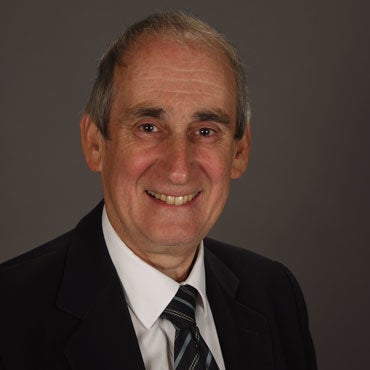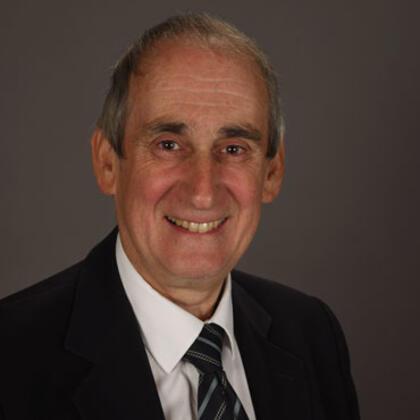Philanthropy has always been a feature of public life from faith and good works in medieval times to charitable giving today. This symposium looks at philanthropy in its historical context, reviews the work of the great philanthropists of the nineteenth century in particular, and asks what it has to offer in the world today.
8 November 2012
Roles in Philanthropy: Old and New
Concluding Remarks
Professor Tim Connell
We are living in difficult times, and I suspect for many people there is little incentive to act in a philanthropic fashion with money at least, as I believe that countless people do donate in kind, offering their time in particular. I wonder whether there is scope to examine the old adage that charity begins at home. People who traditionally might have had surplus money to give are now faced with capital costs that did not face the post-War generations. Pressure is falling on the younger ones especially, which in turn puts pressure on their parents and grandparents. Getting on to the property ladder (which for twenty years at least was viewed as the norm for young married couples) and the cost of paying for university fees are increasingly being referred to the Bank of Mum and Dad, and regulations concerning the setting-up of trusts, for example, have been tightened up so much, that there are fewer opportunities or incentives to put money by for the next generation. And although the younger members of the family may feel hard done by, their elders and betters are beginning to get seriously concerned about their own pensions, which for many years were not seen as a problem for the middle classes, and increasing longevity is facing us all with the costs of long-term care for the fourth age.
I don’t know whether George Osborne watches Gresham broadcasts, but I would like to put forward my own cunning plan which I calculate would kill at least four birds with one stone, and will at least give us something to talk about over drinks afterwards.
The Conservative Party favours raising the Inheritance Tax exemption threshold from the current maximum of £650,000 to £1 million, reflecting the rise in house prices for even fairly modest households, of the sort for whom IHT would not otherwise be a concern. My proposal is for the Government to actually raise that figure to £1 million, by allowing legatees to invest the balance in financial matters that will benefit their families, underlining the idea that charity begins at home, and allowing family money to pass between generations without it being spent frivolously. Beneficiaries would be able to choose between putting the additional £350,000 into one or more pension schemes for family members – we are told after all that there is a pension time bomb ticking away, and that most people have made seriously inadequate provision for their later years. A capital sum of £100,000 is often quoted as the minimum required for a reasonable pension pot.
Alternatively, funds could be directed to pay off the student debts of younger members of the family, giving them a more confident start in their working lives without the burden of re- payments stretching out in front of them for years to come.
And many parents or grandparents would want to help their offspring get onto the property ladder, something made increasingly difficult by the previous point, not to mention the unhelpful attitudes being displayed by the banking sector and the tendency for the amount needed for a deposit to rise faster than wages.
May I also say that recent experience has shown me that allowing a payment of £3000 free of tax to children on marriage is seriously unrealistic for even the average wedding – let alone the cost of setting up home together.
Apart from the benefits accruing to families, and strengthening family life as the Government would wish, such a move would create net savings in the long term, by reducing individuals’ dependency on the state in their final years; it would encourage the concept of long-term saving and ensure higher levels of investment in pension schemes and mortgages and would encourage debt reduction; it would increase the spending capacity of younger people and get them on to the housing ladder at an age which most of us managed to do; and that would create more ready cash for spending in the high street, which in turn would help ease the recession. And ensuring that legatees receive a reasonable capital sum at least once in their lives, of the sort that they are otherwise unlikely to see, unless they win the lottery would encourage forward planning, providing an element of philanthropy in making provision for different members of the family. And careful long-term investment of these funds would offset the revenue lost to government by raising the IHT threshold, and reinforce the capital reserves of both banking and pension funds which all too often now are under-capitalised.
Such a move would also defuse a number of time bombs: an increasing number of young people in recent years have been working without any pension benefits at all, and not even the stakeholder pensions and the latest pension scheme will offset the loss of funds invested early. And it is unlikely that these new schemes will generate sufficient sums to allow people to get by in later life without a state subsidy. We do not yet know what long-term effect increased university fees will have. But we do know that the property market is in the doldrums, which in turn is depressing the building sector and the sale of consumer goods, as the recent demise of Comet in the high street goes to show.
People would not be obliged to make any provision of the sort listed above, and would not be coerced to take up any of these options, or give any of the money away at all. But the incentives and benefits would be clear, and my scheme would allow grandchildren to be included, with funds kept in trust if necessary until they reach the age of eighteen. And people without children would still be able to save – which in turn would leave them with spare income which they could indeed give to charity, under existing IHT-avoidance schemes.
All of the above, however, would depend on a philanthropic stance on the part of the Government and past experience would suggest that this is unlikely. But the element of self-help and reducing dependence on the State could prove attractive to all parties – and it could prove to be a vote-winner for young and old alike.
We will not be able to look to the State in future for the help which has become customary for the last half century. But then that is in itself a fairly recent phenomenon, which we can track back to the introduction of the old age pension in 1908. Past ages have placed great emphasis on using money for the benefit of others. Bequests and charitable funds left to the church by the faithful in the hope of salvation were replaced by the emergence of the philanthropist who accrued massive sums of money through industrialisation in the Nineteenth Century and via the dot com phenomenon today. The general public in the modern world demonstrate their concern for a whole range of issues, whether these are special appeals in the face of disaster, or by signing up with the chuggers who are to be found in many high streets. Perhaps we are beginning to witness a change in attitudes at institutional level too. It is no coincidence that the incoming Lord Mayor, Alderman Roger Gifford, has chosen Service to Society as the theme for his mayoral year.
In conclusion, let me thank our sponsors for their beneficence, The Mercers’ Company and the Corporation of the City of London, who administer the will of Sir Thomas Gresham. The fact that we offer as many lectures as we do is a clear example of the long-term benefit of funds properly invested – none of which would be of any use without the efforts of our new Academic Registrar, Dr Valerie Shrimplin and the Gresham College home team; without the input from our distinguished guest speakers; or Professor Michael Mainelli whose Z/Yen Group has sponsored this evening’s reception.
© Professor Tim Connell 2012


 Login
Login







